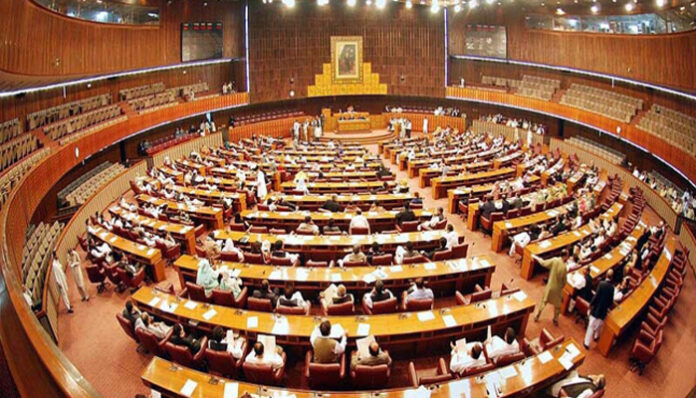ISLAMABAD: The National Assembly’s Standing Committee on Information Technology met on Wednesday to discuss cybersecurity and other related laws, but had to adjourn without any discussion in this regard due to the absence of representatives from the Ministry of Interior (MoI).
The committee issued a note of displeasure and also decided to communicate the constant neglect by the MoI to the privilege committee in a formal complaint.
The continuously delayed point of discussion was related to the capabilities of the IT ministry, Federal Investigation Agency (FIA), Pakistan Telecommunication Authority (PTA), and related authorities with respect to social media, invasion of privacy, defamation, and smear campaigns etc.
The standing issue to be raised during the meeting was that so far Pakistan had not become signatory to international covenants and agreements, such as MLAT, that enables the authorities to demand removal, blocking, or investigation of guilty parties of the above mentioned crime.
The decision to sign or to refrain from these agreements rests with the MoI, and continued disregard by the officials concerned means that the standing committee continues to remain at a standstill.
Several members of the parliament, including Makhdoom Zain Qureshi, Maiza Hameed, Naz Baloch and Kanwal Shauzab, showed their displeasure over the lack of concern by the ministry.
Qureshi said, “It isn’t just in this committee, but the reactions and performance of the ministry have been lackluster in several instances…this committee needs to take a strict action to resolve that.”
The committee then proceeded to discuss ‘The Electronic Transaction (Amendment) Bill 2019’ moved by MNA Syed Fakhar Imam. The bill mover gave a detailed description on the objectives he and other lawmakers hoped to achieve from the bill, which can be summarized to say that the parliament – members of the government that have been voted in by the general population – should have the right to oversee the laws being formulated instead of delegated legislations, (or SROs or ordinances).
In response to this, Deputy Legislative Advisor from Ministry of Law Hassan Mehmood said while the parliament might had the authority to oversee certain aspects of any given law, some issues required expertise and qualification of a professional instead of just a law maker’s general opinion.
“With all due respect to the parliament members, if there is a case of transplant for instance, a medical expert holds more capabilities to understand the complications and repercussions of the law being made instead of the parliament members,” he said.
Fakhar Imam said while delegated legislatures remained less democratic in nature, there were sound arguments on both sides of the matter and therefore it remained the choice of the MNAs to decide on the final course of action.
The committee chair Ali Khan Jadoon, upon the suggestion of some committee members, decided that the issue needed further debate and constituted a sub-committee to discuss the bill in concern. The new sub-committee will include Zain Qureshi as the convener, and MNAs Mahesh Kumar, Kanwal Shauzab and Sher Ali Arbab.
The committee also discussed FIA’s role in registering and resolving complaints related to cybercrimes, to which the FIA Director General said the authority currently only employed 10 forensic experts but was in the process of hiring more experts.
“Recently we have taken 407 new officers on board who are experts and possess educational qualifications in their respective fields, such as investigators, software and hardware experts, as well as forensics.”
























